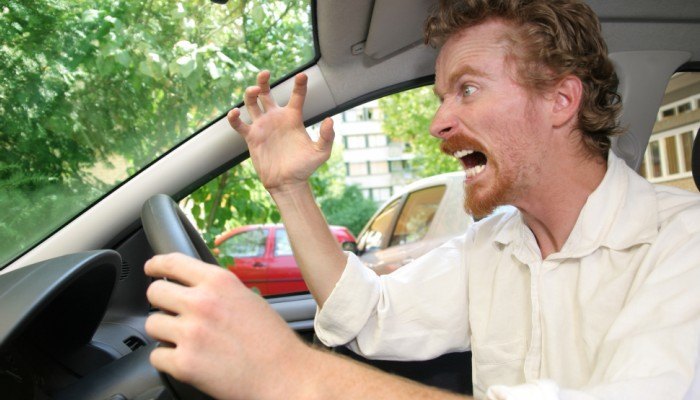
Most drivers have experienced road rage at some point – either from within themselves, or directed at them by others.
It's very common.
Perhaps you're enjoying the open road, listening to your favourite tunes, when another car careens past and swerves in front of you, cutting you off.
Or you draw up to a Give Way sign, only to hear a loud horn from behind you and an impatient-looking driver in your rear-view mirror.
You grip the steering wheel, shouting insults, your blood racing, hoping that the offending vehicle will soon suffer terribly at the hands of the local constabulary – or worse!
These are just two common road rage triggers. Offenders are often themselves filled with anger – an emotion that can so easily be passed on to you, not unlike a virus.
But being gripped by anger is not healthy or pleasant; at its worst it can put the lives of yourself, your passengers and other road users at risk.
But road rage can be managed – or even eliminated altogether.
Here are some helpful tips for dealing with all that automotive anger...
1. Understand that anger is doing you no good, and that even if you could have your revenge, getting it could be dangerous and ultimately unhealthy. As the Buddha said, “You will not be punished for your anger, you will be punished by your anger.”
2. Rather than imagining an offending driver as a malign and selfish person, think about what other reasons they could have for behaving that way. Perhaps it is a father driving his pregnant wife to hospital, or his sick child. Perhaps they are dealing with some other emergency that might make you behave in the same way if the tables were turned. They could be tired, ill or stressed.
3. Consider if your behaviour on the road has caused other road users to act inconsiderately. Are you going too slowly in a fast lane? Do you have a sticker on your rear window that may cause somebody offence?
4. Some people may need (or want) to go faster than your preferred speed. If you tend to travel at a more sedate velocity, be ready to let others pass in good time.
5. Use humour to take the bite out of insults. Imagine the offending driver is a gold fish in a bowl, silently mouthing insults.
6. Realise that both you and other drivers may be far ruder in their vehicles than they would be 'in person'. The relative safety of the motor car can give us a sense of invulnerability. However, road rage can sometimes turn into ‘pavement rage’. Is it worth it?
7. Breathe. When anger comes, it can be difficult to stop it taking you over. Instead, try to focus on your breathing; inhale and exhale slowly through your nose, concentrating on how it feels in your nostrils (whilst staying alert for road hazards, of course).
8. Smile. You don't need to let yourself be infected with other motorists' anger. Respond to inconsiderate driving or rude gestures with a big friendly grin.
9. Harness the power of music. When anger comes, play some calming, slow sounds. AC-DC on the other hand may not be the wisest selection.
10. Think about your health. While sometimes anger helps us deal with certain situations, too much can have serious consequences for your health. Faster breathing, heart rate, adrenaline secretion and the release of stress hormones such as cortisol could negatively affect your heart, your immune system – and your general sense of wellbeing.
That rude driver isn't your enemy. Anger is. So why not be kind to yourself and let it go?




